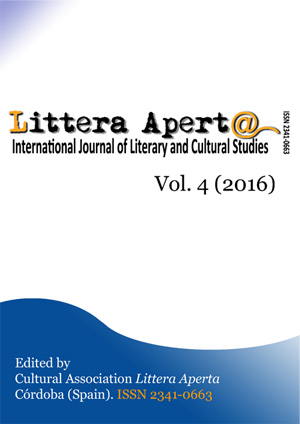Estudio feminista de la otredad en "A streetcar named desire" y en su adaptación cinematográfica iraní, The Stranger
Contenido principal del artículo
Resumen
Las adaptaciones fílmicas de obras de teatro han sido siempre muy populares. A Streetcar Named Desire (1947) de Tennessee Williams ha sido adaptado en varias ocasiones y de formas diferentes. Los estudios feministas y de género han explorado la función nuclear de la Otredad en la caracterización de la identidad femenina. A partir de estos postulados, comparamos los procedimientos mediante los cuales el tema de la Otredad se ha usado para representar la identidad genérica femenina en A Streetcar Named Desire de Tennessee Williams y en su adaptación cinematográfica iraní, The Stranger (Bigāneh) (2014). Los resultados del estudio apuntan a que, aunque en ambas obras se destacan los papeles tradicionales en los personajes femeninos, en la película iraní el protagonista femenino disfruta de una independencia económica relativamente mayor y dispone de voz propia para reaccionar contra las tradiciones patriarcales. Además, mientras que en el texto fuente la identidad femenina se asocia meramente con su naturaleza como lo Otro respecto al varón, las mujeres de The Stranger están a la misma altura que sus contrapartidas masculinos, si no más altas. El trabajo revela igualmente que una razón principal para estas diferencias estriba en las discrepancias sociopolíticas, culturales e históricas entre los contextos respectivos en que fueron creados el drama y la película.
Descargas
Los datos de descargas todavía no están disponibles.
Detalles del artículo
Sección
Artículos
Authors who publish with Littera Aperta agree to the following terms:
- Authors retain copyright and grant the journal right of first publication with the work simultaneously licensed under a Creative Commons Attribution 4.0 International License that allows others to share the work with an acknowledgement of the work's authorship and initial publication in this journal.
- Authors are able to enter into separate, additional contractual arrangements for the non-exclusive distribution of the journal's published version of the work (e.g., post it to an institutional repository or publish it in a book), with an acknowledgement of its initial publication in this journal.
- Authors are permitted and encouraged to post their work online (e.g., in institutional repositories or on their website) prior to and during the submission process, as it can lead to productive exchanges, as well as earlier and greater citation of published work (see The Effect of Open Access).
